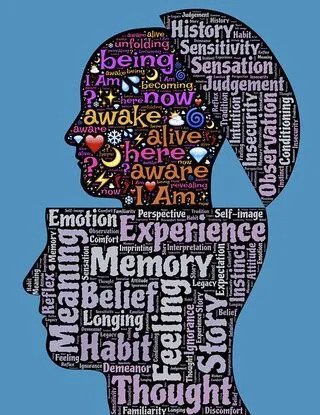Stop It! – Leadership Series Blog #2 – Self-Awareness
Introduction
In our first blog post of this leadership series, we identified the importance of understanding which behaviors to stop doing to improve your leadership skills and either land that coveted position or improve your current leadership habits. Many leadership programs identify behaviors you should exhibit; however, few identify behaviors you must stop doing to be your best. It takes a skill known as self-awareness to move from a “to-do” list to a “to-don’t” list about your conduct at work. Self-awareness takes hard work and commitment to changing yourself for the better.
Author Dr. Joe Dispenza, in his book, Breaking the Habit of Being Yourself (2014), says the key to fixing any problem is understanding what is not working. For example, if you find your car won’t start, you don’t spend time telling the vehicle what it should be doing to run; that would be ridiculous. Instead, you pour your energies into finding the problem by examining each part of the car. Once you locate the broken piece, you fix or replace it. The process of self-awareness is quite similar; you have to diagnose the issue(s) to make changes.
In this blog post, we will explore self-awareness skills as a tool to help you identify habits that elicit negative responses from others and are holding you back in your career. In subsequent posts, we will point out specific behaviors you must fix to advance in your leadership journey.
What is Self-Awareness?
As a base definition, self-awareness is understanding your inner thought world and how those thoughts translate to feelings, motives, desires, and behaviors. You act based on that inner thought world, and others will respond in kind. It’s the actions that cause others to respond in a negative way that you must stop doing to succeed.
Behavioral experts define self-awareness as recognizing, admitting, and declaring your faults (Dispenza, 2014). Marshall Goldsmith, author of What Got You Here Won’t Get You There, defines a lack of self-awareness as your delusion that your actions brought you this far in your career, so if you keep doing the same things, you will continue to move forward at work. In his book, Emotional Intelligence. Why it Can Matter More Than IQ, Daniel Goleman (2005) defines self-awareness as a “neutral mode” (p. 47) where you are aware of your emotions and do not allow them to drive your behavioral responses.
While being aware of yourself is helpful, you must moderate your actions based on your internal thought world and the responses of those around you. In short, self-awareness without purposeful action is pointless.
Blind Spots – We All Have Them
You might think, “Gee, thanks for the lesson, but that doesn’t really help me.” OK, that is a fair observation. So, how do you become more self-aware of your leadership habits?
Start by reviewing the negative feedback you’ve been given from supervisors, colleagues, direct reports, and others in your organization. Next, look for a common theme or thread in the feedback. For example, I received consistent feedback I behaved like a know-it-all. I was shocked, dismayed, and immediately denied it. I couldn’t understand where this was coming from. However, when I looked back over my career, I realized nearly all of the corrective feedback I received had the same theme. I had a huge blind spot!
Once you identify the commonalities in the feedback, make a list and identify your associated habits. You can ask trusted colleagues, friends, or family to review your list and give you examples of the conduct causing the problem. For example, I asked a trusted colleague to tell me why I was perceived as a know-it-all. The response shocked me. She said, “You have to add some comment on every project, email, conversation, meeting, and so on, even if you are not part of the team. You are not the subject-matter expert on everything, so stop acting like you are.”
Once I recovered from what felt like a sucker punch to the stomach, I thanked my colleague for her honesty. I talked to my family and friends only to discover, yup, I behaved that way in my personal life too. UGH! I was forced to take a stern look in the mirror and set my intentions to discover other characteristic actions I had to stop to succeed at work and home.
Next Steps
Becoming self-aware is a journey, not a destination; it takes practice and time. Think of self-awareness as a personal Six Sigma project – you are continually improving, constantly assessing defects, and removing them from the end product. Many great resources are out there to help you with your self-awareness practices. I urge you to find what resonates with you and begin your journey straight away. Once self-awareness becomes a regular practice, then you can more easily identify the stop-it behaviors holding you back.
In our subsequent blogs, we identify specific behaviors you must stop doing to succeed in your leadership career. If you commit to honesty with yourself and are willing to put the work in to change, you will find your life begins to flourish in ways you never thought it could!
Links to Self-Awareness Resources
I own each of these resources and have found them very helpful in my professional career. I have no financial interest or relationship with these books’ authors, publishers, or sellers. I really just love these publications!
Marshall Goldsmith – What Got You Here Won’t Get You There
Daniel Goleman – Emotional Intelligence. Why It Can Matter More Than IQ
Joe Dispenza – Breaking the Habit of Being Yourself
Travis Bradberry – Emotional Intelligence 2.0
Ken Blanchard – Raving Fans
What do you think? Do you struggle with self-awareness? Share your story to help others on their journey. Email us at [email protected] to join the discussion.
For a free Professional Development Consulting Services consultation, visit NurseWritersGroup.com/contact-us and send a note!




